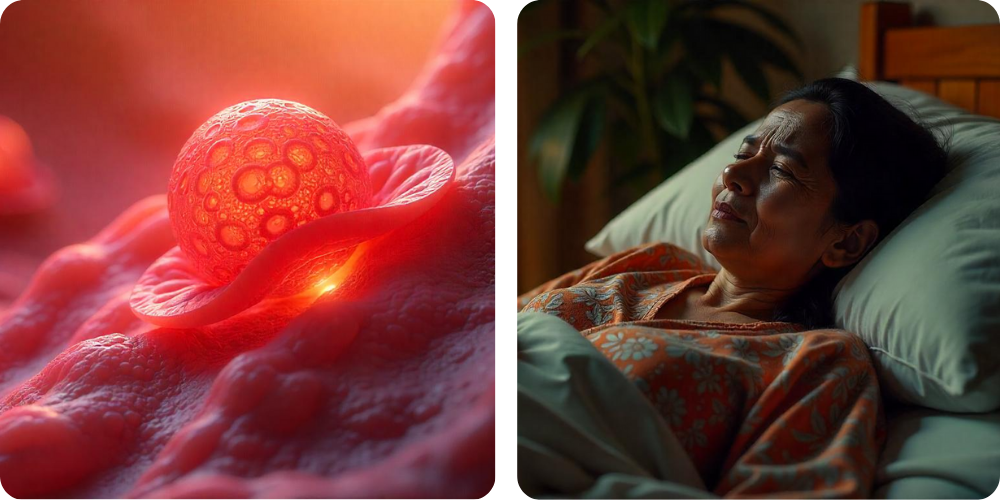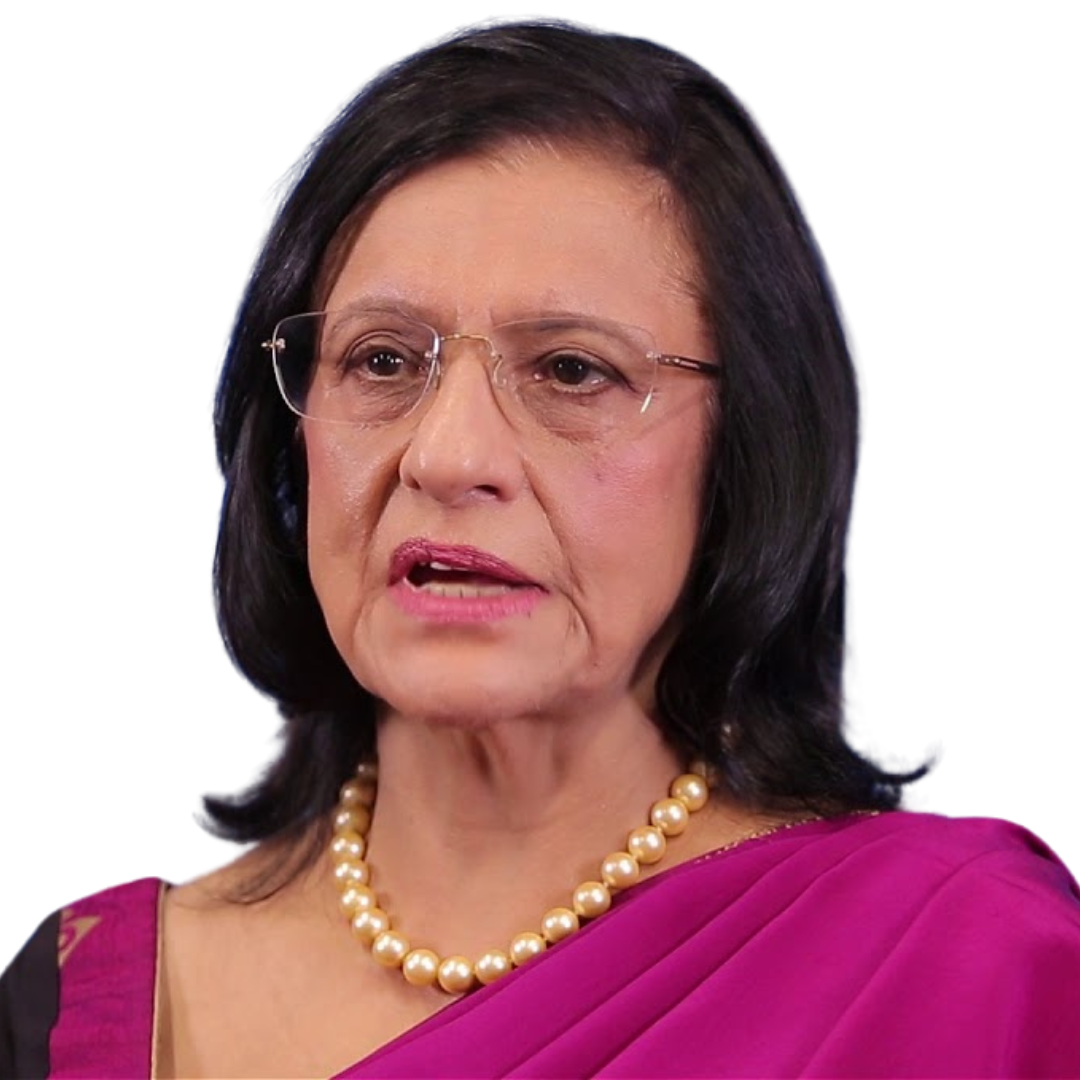Malaysian Women, Ovarian Cancer, and the Power of Awareness on This World Ovarian Cancer Day

8th May, marks the World Ovarian Cancer Day. It's a global initiative, but today, we shine a particular light on the women of Malaysia. Ovarian cancer, often termed the "silent killer," is a significant health challenge faced by women worldwide, and Malaysian women are no exception.
This article is dedicated to them – to raising awareness, fostering understanding, and empowering every woman in Malaysia with knowledge about this disease.

Ovarian cancer begins in the ovaries, the small, almond-shaped organs responsible for producing eggs and hormones like estrogen and progesterone. Unlike some other cancers, it often develops quietly, with symptoms that can be vague and easily mistaken for common digestive or menstrual issues. This subtlety is its danger, frequently leading to diagnoses at later stages when the cancer is harder to treat.
The Malaysian Reality: Understanding the Impact
In Malaysia, ovarian cancer stands as a formidable health concern. While precise, real-time national statistics can be challenging to consolidate, data from sources like the Malaysian National Cancer Registry and global databases like GLOBOCAN consistently place it among the top 10 most common cancers affecting Malaysian women, often ranking around 5th or 6th depending on the reporting year.
More concerning than its incidence rate is its relatively high mortality rate compared to other female cancers. This is largely attributed to the challenge of early detection. Reports suggest that a significant percentage, potentially over 60-70% of Malaysian women diagnosed with ovarian cancer, present at advanced stages (Stage III or IV).

The impact extends far beyond statistics. A diagnosis ripples through the lives of women, their families, and communities. It brings emotional turmoil, financial strain due to treatment costs and potential loss of income, and profound changes to daily life. The journey is often one of resilience, strength, and immense courage.
Recognising the Whispers: Symptoms to Watch For
While there's no single, routine screening test for ovarian cancer for women at average risk (unlike Pap smears for cervical cancer or mammograms for breast cancer), being aware of persistent symptoms is crucial. Potential symptoms might include fatigue, back pain, pain during intercourse, constipation, or changes in menstrual cycles. The key is persistence and change from what is normal for you.
If you experience any of the following symptoms frequently (more than 12 times a month), persistently, and newly, it's vital to consult a doctor, specifically mentioning the possibility of ovarian cancer:

Bloating
Persistent abdominal bloating that doesn't easily go away.

Abdominal Pain
Discomfort or pain in the lower stomach or pelvic area

Trouble Eating
Difficulty finishing even small meals or feeling full quickly

Urinary Symtoms
Needing to urinate urgently or more often than usual
Voices of Wisdom and Hope from Across Asia
Understanding and tackling women's health issues requires collective wisdom and encouragement. Prominent figures across Asia have often spoken to the broader themes of health awareness and resilience:

"Health is not merely the absence of disease, it is the dynamic expression of life. Awareness and early action are our greatest allies in protecting it." - While not a direct quote on ovarian cancer, this sentiment, often echoed by health leaders like former Malaysian Director-General of Health, Tan Sri Dr. Noor Hisham Abdullah, emphasizes the proactive stance needed.

"Empowering women with knowledge about their own bodies is the first step towards building healthier communities and nations. We cannot afford silence when it comes to women's health." - This reflects the advocacy seen from figures like Dr. Poonam Khetrapal Singh, WHO Regional Director for South-East Asia, highlighting the societal importance of female health literacy.
Navigating the Path Forward: Diagnosis and Treatments
If ovarian cancer is suspected, doctors typically use a combination of methods for diagnosis:

Pelvic Examination
A physical check of the pelvic organs.

Transvaginal Ultrasound
An imaging test using sound waves to view the ovaries.

CA-125 Blood Test
Measures a protein often elevated in women with ovarian cancer (though it can be raised by other conditions too).

Biopsy
The definitive diagnosis comes from surgically removing tissue for laboratory examination.
Treatment for Ovarian Cancer
Treatment for ovarian cancer usually involves a combination of approaches, tailored to the individual's cancer stage, type, and overall health:
- Surgery: Often the primary treatment, aiming to remove as much of the tumour as possible (debulking surgery). This might include removing the ovaries, fallopian tubes, uterus, and nearby affected tissues.
- Chemotherapy: Using powerful drugs to kill cancer cells, typically given after surgery, but sometimes before to shrink tumours.
- Targeted Therapy: Newer drugs that target specific molecules involved in cancer growth (e.g., PARP inhibitors for women with BRCA mutations).
- Immunotherapy: Treatments that help the body's own immune system fight the cancer (less common currently for ovarian cancer but an area of active research).

Malaysia has dedicated oncology centres and skilled medical professionals equipped to manage ovarian cancer, offering these standard treatments. Access to newer targeted therapies may vary, often depending on specific genetic markers and healthcare settings.
Empowerment Through Action: What Every Malaysian Woman Can Do
On this World Ovarian Cancer Day, let's translate awareness into action:

- Listen to Your Body: Pay attention to persistent changes. Don't dismiss unusual bloating, pain, or fullness as "just part of being a woman."
- Know Your Family History: A family history of ovarian, breast, uterine, or colorectal cancer can increase risk. Inform your doctor.
- Consult Your Doctor: If you have concerning symptoms, see a doctor or gynaecologist promptly. Mention your concerns about ovarian cancer specifically.
- Live Healthily: While not preventing all cases, maintaining a healthy weight, regular exercise, and a balanced diet contribute to overall well-being.
- Break the Silence: Talk about women's health openly with friends and family. Encourage others to be symptom-aware.
- Support Research & Advocacy: Support organisations working on cancer research, patient support, and awareness in Malaysia.
A Message of Hope and Unity
Ovarian cancer is a serious challenge, but it's not impossible to deal with. Through increased awareness, earlier detection efforts, advancements in treatment, and unwavering community support, we can improve outcomes for Malaysian women. Let World Ovarian Cancer Day be a reminder that knowledge is power, early action saves lives, and together, we can raise our voices against the silence. Let's honour the women affected, support those currently fighting, and empower every woman in Malaysia to prioritise her health.
Disclaimer: This article provides general information and is not a substitute for professional medical advice. Always consult with a qualified healthcare provider for any health concerns
Get protected with our Health Insurance today!
Explore our top two plans, designed to fully cover kidney dialysis expenses while also providing comprehensive protection for cancer, heart treatments, and more.


